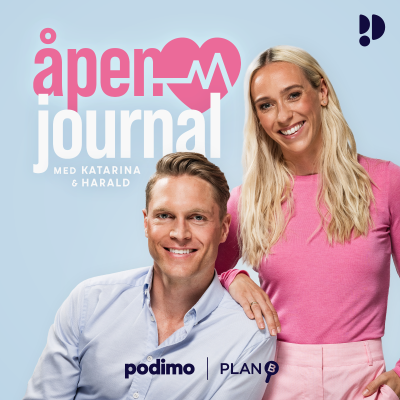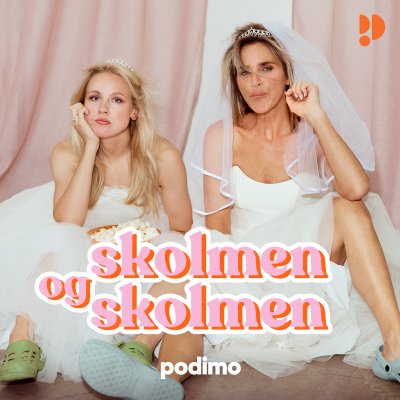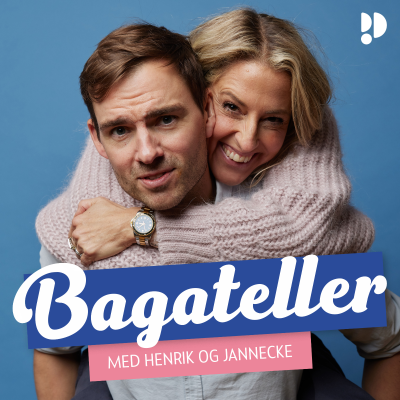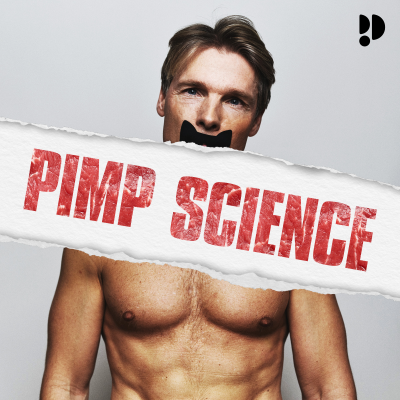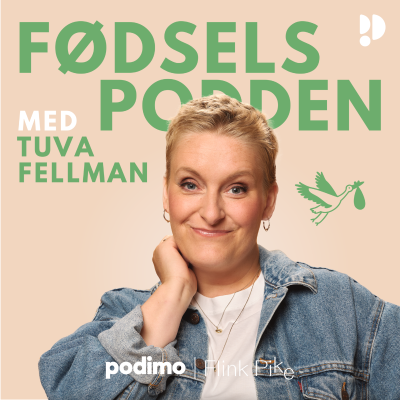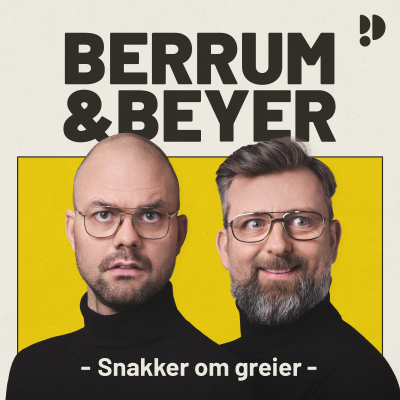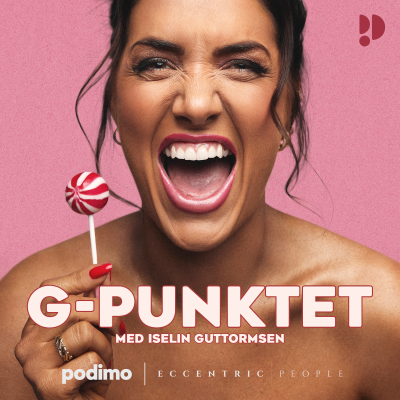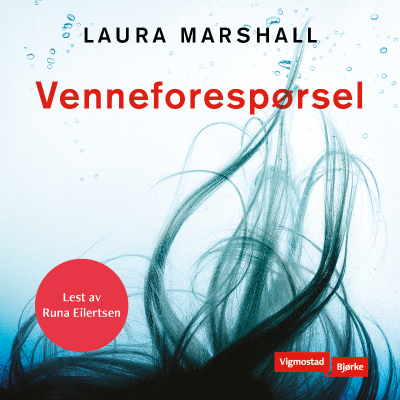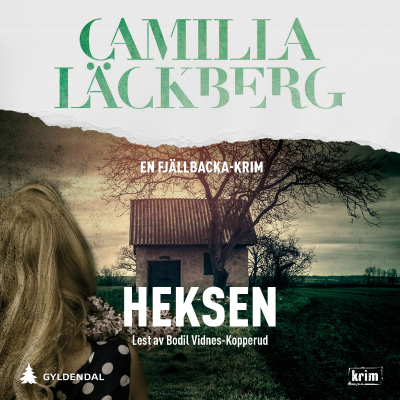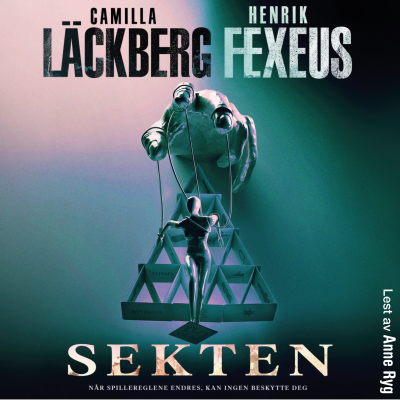Any Further Questions? - A Gresham Podcast
Podkast av Gresham College
Welcome to a brand new podcast by Gresham College called Any Further Questions?This is a podcast where we sit down with one of our speakers for an in-depth candid discussion on the lecture they just gave. Due to our strict 1 hour lecture time, we get tons of questions from our online and in-person audience that go unanswered.This is the place they are answered.
Prøv gratis i 7 dager
99,00 kr / Måned etter prøveperioden.Avslutt når som helst.
Alle episoder
23 EpisoderSend us a text [https://www.buzzsprout.com/twilio/text_messages/2234212/open_sms] In this third podcast exploring the underlying assumptions of economics, Victoria Bateman explains how economists have ignored the importance of sex and gender. She argues that the status and freedom of women are central to making the west rich, overtaking other parts of the world that had long been ahead. She shows hot obsession with women’s bodily modesty has made women dependent on men, and how this cult of modesty has changed over time and between countries. She calls for a fundamental change in modern economics which has neglected women, lacked historical understanding, and ignored the wider social sciences. Victoria Bateman studied economics at the Universities of Cambridge and Oxford, She returned to Cambridge in2009 as Fellow of Gonville and Caius College, before leaving to become an independent scholar and consultant. Her work links economic history and economics, and above all the role of women. She is a regular broadcaster, contributor to newspapers, public speaker. Books we discuss are: The Sex Factor: How Women Made the West Rich Cambridge, 2019. Naked Feminism: Breaking the Cult of Female Modesty Cambridge, 2023. https://www.vnbateman.com/ [https://www.vnbateman.com/] Gresham College has offered free public lectures for over 400 years, thanks to the generosity of our supporters. There are currently over 2,500 lectures free to access. We believe that everyone should have the opportunity to learn from some of the greatest minds. To support Gresham's mission, please consider making a donation: https://gresham.ac.uk/support/ [https://gresham.ac.uk/support/] Website: https://gresham.ac.uk [https://gresham.ac.uk] Twitter: https://twitter.com/greshamcollege [https://twitter.com/greshamcollege] Facebook: https://facebook.com/greshamcollege [https://facebook.com/greshamcollege] Instagram: https://instagram.com/greshamcollege [https://instagram.com/greshamcollege] Support the show [https://www.gresham.ac.uk/get-involved/support-us/make-donation/one-donation]
Send us a text [https://www.buzzsprout.com/twilio/text_messages/2234212/open_sms] TIn this second podcast exploring the underlying assumptions of economics, Avner Offer explains how the post-war age of economic growth was built on American and European welfare states and social democracy. This settlement was challenged in the 1970s by a coalition of business, taxpayers, consumers, ideologists and social scientists. The result of this discontent was the intellectual and political dominance of market liberalism. In this conversation, Martin Daunton and Avner Offer explore how this shift came about, what role was played by the Nobel Prize in economics, and what explains the divide between the public and private sectors. The key books we discuss are: The Challenge of Affluence: Self Control and Well-Being in the United States and Britain since 1950, Oxford, 2006. With Gabriel Soderberg, The Nobel Factor: The Prize in Economics, Social Democracy and the Market Turn Princeton and Oxford, 2016. Understanding the Private-Pubic Divide: Markets, Governments and Time Horizons Cambridge 2022. Gresham College has offered free public lectures for over 400 years, thanks to the generosity of our supporters. There are currently over 2,500 lectures free to access. We believe that everyone should have the opportunity to learn from some of the greatest minds. To support Gresham's mission, please consider making a donation: https://gresham.ac.uk/support/ Website: https://gresham.ac.uk Twitter: https://twitter.com/greshamcollege Facebook: https://facebook.com/greshamcollege Instagram: https://instagram.com/greshamcollege Support the show [https://www.gresham.ac.uk/get-involved/support-us/make-donation/one-donation]
Send us a text [https://www.buzzsprout.com/twilio/text_messages/2234212/open_sms] How do we know light is constant throughout the universe? What new technology or theory would we need to further develop our understanding of the beginnings of the universe? How do you know that the galaxies are made of certain elements? These and many more questions were put to Professor Chris Lintott for episode 13 of our new series! This podcast followed his lecture ‘First Light: Revealing the Early Universe’ which was given on 29th May 2024. You can find information about his lecture and others in his series here: https://www.gresham.ac.uk/watch-now/first-light [https://www.gresham.ac.uk/watch-now/first-light] Support the show [https://www.gresham.ac.uk/get-involved/support-us/make-donation/one-donation]
Send us a text [https://www.buzzsprout.com/twilio/text_messages/2234212/open_sms] In this first podcast exploring the underlying assumptions of economics, Richard Whatmore discusses Adam Smith’s The Wealth of Nations and shows how he has been misinterpreted as an advocate of unfettered free markets. Smith was more concerned to show that economic relations rely on ‘moral sentiments’, on empathy and the ability to understand the needs of other members of society. Equally, he shows how Friedrich Hayek is more nuanced that his critics allow. In a wide-ranging discussion, Richard Whatmore explores issues that informed the rise of economics in the eighteenth century and continue to resonate today – economic nationalism and internationalism, trade and warfare, debt and public spending. Richard Whatmore studied history at the University of Cambridge, where he completed his doctorate on eighteenth and nineteenth century political economy. He joined the University of Sussex where he became Professor of Intellectual History before moving to his current post of Professor of Modern History at the University of St Andrews where he is also Director of the Institute of Intellectual History. His work has focussed on the intellectual history of the rise of European commercial empires and the enlightenment, now summed up in The End of Enlightenment: Empire, commerce, Crisis (2023). Gresham College has offered free public lectures for over 400 years, thanks to the generosity of our supporters. There are currently over 2,500 lectures free to access. We believe that everyone should have the opportunity to learn from some of the greatest minds. To support Gresham's mission, please consider making a donation: https://gresham.ac.uk/support/ Website: https://gresham.ac.uk Twitter: https://twitter.com/greshamcollege Facebook: https://facebook.com/greshamcollege Instagram: https://instagram.com/greshamcollege Support the show [https://www.gresham.ac.uk/get-involved/support-us/make-donation/one-donation]
Send us a text [https://www.buzzsprout.com/twilio/text_messages/2234212/open_sms] This episode is part of a series of lectures called 'New Hope in Cancer' sponsored by Novartis. What do we mean by Cancer genomics? What are the introns in our DNA used for? Are they just a place-holder DNA or is there actual use for it? Should cancer care be delivered differently? These and many more questions were put to Sanjay for episode 12 of our new series! This podcast followed his lecture ‘How Cancer Genomics is Transforming Cancer Care’ which was given on 23rd January 2024. You can find information about his lecture here: https://www.gresham.ac.uk/watch-now/cancer-genomics [https://www.gresham.ac.uk/watch-now/cancer-genomics] Support the show [https://www.gresham.ac.uk/get-involved/support-us/make-donation/one-donation]
Prøv gratis i 7 dager
99,00 kr / Måned etter prøveperioden.Avslutt når som helst.
Eksklusive podkaster
Uten reklame
Gratis podkaster
Lydbøker
20 timer i måneden
